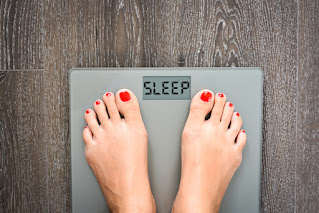In the quest for weight loss, we often focus on diet and exercise, but there's a crucial player we sometimes overlook – sleep. Reflecting on last week's minimal weight loss despite my efforts, I explored the profound connection between sleep and weight management.
Let's delve into the intricate web of hormones influenced by sleep, and how they impact our journey towards a healthier weight.
Hormones and Sleep Quality:
Poor sleep is associated with a cascade of hormonal changes that can sabotage weight loss efforts. One notable player is ghrelin, known as the hunger hormone. When sleep-deprived, our bodies produce more ghrelin, intensifying feelings of hunger and leading to increased calorie consumption. On the flip side, inadequate sleep reduces levels of leptin, the hormone responsible for signaling fullness. This double whammy sets the stage for weight gain, as the body craves more calories while feeling less satisfied.
Cortisol and Stress Responses:
Another player in the sleep-weight loss equation is cortisol. Poor sleep has been linked to elevated cortisol levels, amplifying stress responses that can interfere with weight loss efforts. Increased cortisol not only contributes to feelings of anxiety and restlessness but also triggers the body to store fat, particularly around the abdominal area.
Oxidative Stress, Glucose Intolerance, and Insulin Resistance:
Beyond ghrelin and leptin, elevated cortisol levels associated with insufficient sleep has been linked to increased oxidative stress, glucose intolerance, and insulin resistance. Poor sleep can disrupt the delicate balance of blood sugar levels, paving the way for insulin resistance – a precursor to diabetes. This metabolic imbalance not only impedes weight loss but also poses serious health risks.
Circadian Rhythms and Weight Gain:
Disrupted circadian rhythms–a consequence of irregular sleep patterns–can also contribute to elevated cortisol levels. The body's internal clock, influenced by sleep-wake cycles, regulates cortisol secretion. Irregular sleep patterns disrupt this delicate balance, potentially leading to increased cortisol production during inappropriate times as well as influencing the optimal times for various physiological processes, including metabolism. This hormonal disruption not only contributes to weight gain but also exacerbates the challenges of shedding excess pounds. Moreover, extra waking hours may provide more opportunities for eating, potentially leading to overconsumption of calories.
The Importance of Adequate Sleep:
To counteract these hormonal disruptions and optimize weight loss, prioritizing adequate sleep is crucial. Aiming for 7-9 hours of quality sleep per night can help regulate ghrelin, leptin and cortisol levels, improve insulin sensitivity, mitigate stress responses, and support overall hormonal balance and metabolic health.
Cognitive Function and Sleep Cycles:
The importance of sleep extends beyond weight loss, encompassing cognitive function and general well-being. Our sleep cycles, including REM (Rapid Eye Movement) and deep sleep, are essential for various physiological processes. REM sleep aids in memory consolidation, while deep sleep contributes to physical restoration and recovery. Falling short of the recommended 7-9 hours of sleep per night can disrupt these cycles, leading to cognitive impairment, mood swings, and decreased overall well-being.
Insights on Sleep Without Medication:
Renowned health expert, Dr. Michael Greger MD, emphasizes the significance of achieving a good night's sleep without relying on sleep medications. In his informative video How to Get a Good Night's Sleep Without Sleeping Pills, Dr. Greger explores practical strategies for improving sleep quality, including maintaining a consistent sleep schedule, creating a conducive sleep environment, and adopting relaxation techniques.
DISCLAIMER: This general information is for educational purposes and not intended to diagnose any medical condition or to replace your healthcare professional.




